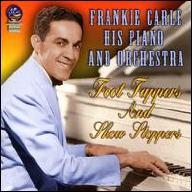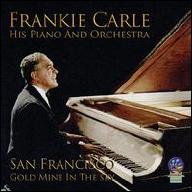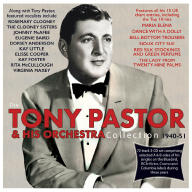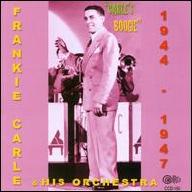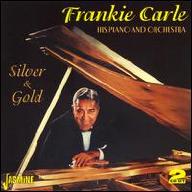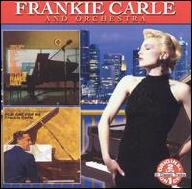However, in 1941, Carle suddenly found himself in demand from several quarters. Eddy Duchin, who had just been drafted into the Navy, offered Carle the leadership of his band in his absence for a cut of the profits. This led to a bidding war, with Heidt offering Carle $1000 a week plus a five-percent cut of the gross to remain with his outfit; Carle wound up staying on as musical director. About two years later, Heidt decided to exit the music business, and helped Carle form his own band, which debuted in 1944.
His signature tune was Sunrise Serenade, which had been a hit for Glenn Miller after Carle co-authored it in 1938; he recorded his own version for Columbia in 1945. A sponsor, in the shape of Old Gold cigarettes, was quick in coming, and Carle had a national radio show. Carle's repertory ranged far and wide, from big-band revivals of Stephen Foster numbers like Swanee River to contemporary subjects such as I'm Going to See My Baby, a 1944 release that referred to the anticipated Allied victory in World War II. Their sound had a lot going for it -- in addition to Carle's formidable and highly melodic approach to the piano, there was vocalist Phyllis Lynne, who could evoke simmering passions or wide-eyed innocent romance. Lynne was succeeded by Marjorie Hughes (Carle's own daughter), and resident male vocalist Paul Allen also made a good impression on the public during the mid-'40s. The Carle orchestra had a clean, crisp sound, the trumpets, trombones, and the piano well-delineated; arrangers included ex-Horace Heidt alumnus Frank DeVol. Carle's work, like most of the best pop outfits of the period, incorporated elements of jazz, even though it was principally a dance or "sweet" (i.e. pop) band.
Their music was sparked by Carles bravura piano style. The big-band era ended, but Carle's career didn't. He didn't chart any records after the '40s, but he was still touring and playing concerts in the '80s, 40 years after he left Horace Heidt's band, and 70 years after he started in the business. Carle was the most senior of surviving big-band leaders until he passed away in early 2001 at the age of 97. ~ Bruce Eder, Rovi


